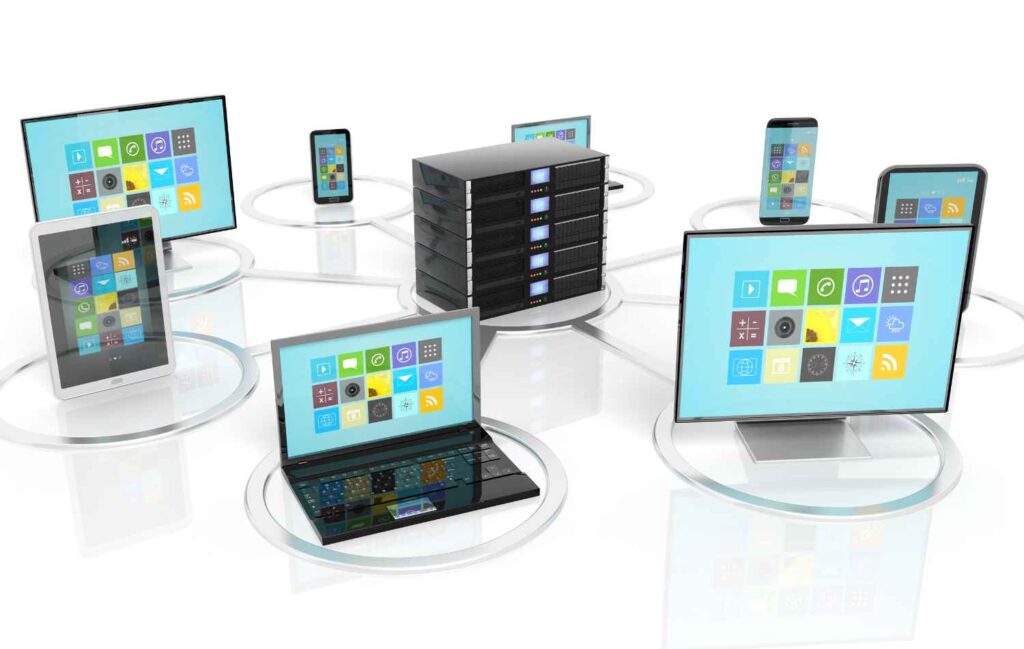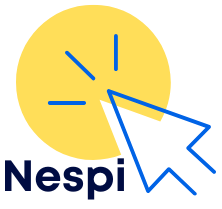
Big Data analytics and Artificial Intelligence workloads have transformed enterprise computing, processing unprecedented data volumes to extract insights that drive business decisions. These systems typically run on distributed computing frameworks written in Java—Apache Hadoop, Apache Spark, Apache Kafka, and numerous specialized AI/ML platforms all leverage the Java Virtual Machine's portability and ecosystem.
However, accessing data stored in Windows-based file systems presents significant challenges for Java applications. Legacy SMB libraries support only obsolete SMB1 protocol versions with severe security vulnerabilities. Microsoft recommends disabling SMB1 entirely due to security concerns.
Visuality Systems developed jNQ to address this critical gap. As the only commercial SMB library written in pure Java with full SMB 3.1.1 support, jNQ enables Big Data and AI systems to access Windows-based storage with enterprise-grade security and performance.
What Limitations Does JCIFS Impose on Enterprise Java Applications?
For nearly two decades, the JCIFS open-source library served as the de facto standard for SMB connectivity in Java applications. However, JCIFS supports only SMB1, which Microsoft considers deprecated and insecure. Organizations running security-conscious Windows environments disable SMB1, rendering JCIFS-based applications unable to connect.
No Encryption Support: JCIFS cannot encrypt data in transit, exposing sensitive information. In regulated industries with compliance requirements like HIPAA or GDPR, unencrypted file transfers may violate regulatory mandates.
Limited Authentication: JCIFS supports only basic NTLM authentication, lacking Kerberos support necessary for seamless Active Directory integration.
Performance Degradation: JCIFS was not optimized for modern network speeds or large file operations. Applications transferring terabytes of data experience significant performance penalties.
Abandoned Development: The original JCIFS project saw minimal updates in recent years, leaving security vulnerabilities unpatched.
How Does jNQ Transform Java Application Capabilities?
jNQ provides Java applications with the same SMB capabilities available to native Windows applications. Written in pure Java, jNQ maintains platform independence while delivering performance and security that rival native implementations.
Complete Protocol Support: jNQ supports all SMB dialects from SMB 2.0 through SMB 3.1.1, ensuring compatibility with modern Windows servers while maintaining backward compatibility.
Enterprise Security: jNQ implements AES encryption for data in transit and Kerberos authentication support for seamless Active Directory integration.
Visuality Systems is the worldwide leader in the development and provision of Server Message Block (SMB) protocol solutions, serving the needs of embedded devices, Java systems, and mobile applications. Their cutting-edge technology is widely adopted across a diverse spectrum of industries, including IoT & consumer electronics, data management networks, automotive, medical, aerospace & defense, HMI, telecom, banking, robotics, and more.
Optimized Performance: jNQ achieves exceptional performance through careful optimization of encrypted data transfer operations, maintaining high transfer speeds even with full encryption active.
Platform Flexibility: jNQ works with Oracle Java, OpenJDK, and IBM Java across multiple platforms.
What Role Does jNQ Play in Managed File Transfer Systems?
Managed File Transfer (MFT) systems move sensitive data between disparate systems, including cloud platforms, legacy mainframes, and Windows file servers. Financial institutions, healthcare organizations, and government agencies rely on MFT for secure, auditable file transfers.
jNQ enables MFT systems to incorporate Windows file shares as first-class transfer endpoints. Organizations can configure automated workflows that retrieve data from Windows servers, process it through transformation engines, and deliver results—all with full encryption, authentication, and audit logging.
The Payment Card Industry Data Security Standard mandates encrypted data transmission for sensitive payment information. MFT systems using jNQ can satisfy these requirements when transferring data to or from Windows file shares.
How Do Big Data Frameworks Benefit from Modern SMB Access?
Apache Spark and Hadoop underpin much of the Big Data processing ecosystem. These frameworks excel at distributed processing but require efficient data access to underlying storage systems.
Data Lake Integration: Modern data lakes incorporate diverse storage technologies. jNQ enables Spark and Hadoop jobs to read directly from Windows shares, eliminating the need for intermediate data copies.
Real-Time Processing: Apache Kafka and similar streaming platforms process real-time data streams. When source data arrives on Windows file shares, jNQ allows streaming applications to ingest data immediately.
Machine Learning Pipelines: AI and machine learning workflows involve iterative processes that read training data and execute model training. When training data resides on Windows file shares, jNQ enables ML frameworks to read data directly.
According to Apache Spark documentation, Spark can integrate with numerous storage systems through pluggable file system interfaces.
What Advantages Does DFS Support Provide?
Distributed File System (DFS) is a Windows Server technology that provides location transparency and load balancing for file shares. jNQ includes comprehensive DFS support with transparent implementation—applications don't need special code to handle DFS.
Load Distribution: DFS can direct clients to different servers based on site topology and current load. Simplified Storage Management: IT departments can reorganize storage backend without affecting applications. Geographic Distribution: Global organizations can replicate data to regional data centers and use DFS to direct users to the nearest replica.
How Does jNQ Enable Cloud-Native Java Applications?
Cloud-native applications built on container platforms like Kubernetes and running in public clouds increasingly dominate new development. These applications often need to access data stored in on-premises Windows file systems.
Hybrid Cloud Integration: Java microservices running in AWS or Google Cloud may need to access data stored on on-premises Windows servers. jNQ enables these cross-environment integrations securely.
Azure Files Integration: Microsoft Azure Files provides fully managed file shares accessible via SMB protocol. Java applications deployed in Azure can use jNQ to access Azure Files.
Containerized Applications: Docker containers and Kubernetes pods can mount persistent volumes backed by SMB shares. jNQ allows Java applications within these containers to read and write files.
What RPC Capabilities Does jNQ Provide Beyond File Access?
jNQ supports Remote Procedure Call (RPC) protocols essential for Windows administration: SAMR for managing user accounts, LSA for security policy information, WINREG for registry access, SRVSVC for server management, and DSSETUP for Active Directory information. These capabilities transform jNQ from a simple file access library into a comprehensive Windows integration toolkit.
Why Does Microsoft Patent Licensing Matter for Enterprise Java?
In today’s fast-paced digital world, even the smallest detail can make a big difference for organizations that rely on advanced technology. The strategic partnership between Visuality Systems and Microsoft for SMB patent licensing delivers significant added value to businesses. Through this collaboration, the jNQ solution is shipped with licensed Microsoft SMB patents — ensuring customers are fully protected from potential legal and patent exposure risks.
More and more companies implementing AI and Big Data solutions are discovering that data access is often the biggest barrier to faster insights. This is exactly where Visuality Systems steps in. By enabling secure, high-performance access to Windows-based storage directly from Java applications, jNQ removes this critical bottleneck, accelerating data analysis and empowering smarter, faster decision-making.
With this unique licensing model and innovative technology, organizations gain more than legal protection — they gain a real competitive edge.
Discover how to enhance your data infrastructure today at https://visualitynq.com/ and see how Visuality Systems can transform the way your business accesses and manages information.
